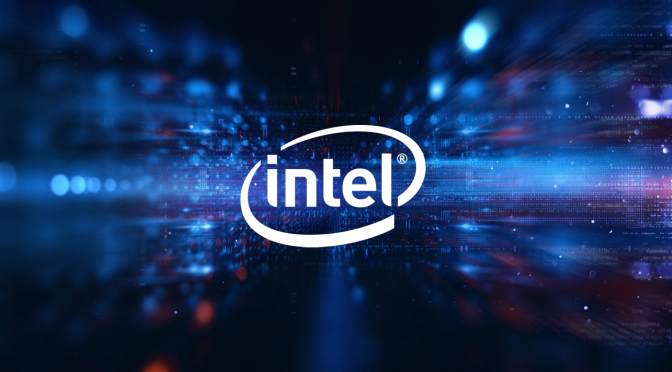According to a recent report coming via Phoronix, Dell is working on getting Linux Power Management optimized for their latest systems, and also for upcoming Tiger Lake Desktop CPUs. Both Intel and Dell are currently working on implementing S0ix power-saving states into the LINUX kernel (heuristic S0ix support).
Dell reportedly admits that Tiger Lake desktop processor/TGL lineup is in development. Intel has never mentioned about the Tiger lake series coming to desktop PCs, and it was also not in the company’s roadmap either.
Implementing those S0ix power-saving state patches is necessary because Intel is slowly moving away from the legacy S3 power state (Suspend to RAM).
Basically, S0ix-states represent the residency in the Intel SoC idle standby power states. The S0ix states shut off parts of the SoC when they are not in use, while still maintaining optimal performance. These states are triggered when specific conditions within the SoC have been achieved, for example, when certain components are in low power states.
From an ACPI-compatible-OS point of view, S0ix is an idle condition while still in “S0 active” state. However, S0ix is not totally transparent to the OS. In order to enter the S0ix state, there are specific platform-dependent conditions the OS must meet.
For this purpose, the ACPI 6.2 Specification introduced a Low Power S0 Idle Capable Flag in the Fixed ACPI Description Table (FADT). For x86 systems, this flag informs the OS whether the SoC has S0ix support or not.
In Haswell (and Clovertrail), Intel introduced a new S0ix active idle state (there are multiple active idle states, e.g. S0i1, S0i3). These states promise to deliver the same power consumption as S3 sleep, but with a quick enough wake up time to get back into full S0 should you need to do something with your device.
Dell engineers have recently added support for Tiger Lake desktop systems, and are being validated and tested on pre-released hardware. So this basically brings support for S0ix heuristics to the Linux kernel.
But if the final hardware is different, any commits will be reverted. From this Linux kernel patch, it appears that Tiger Lake desktop processors might be in some sort of development process.
What this basically means that DELL might bring Tiger Lake Mobile processors to Desktop PCs as well. Intel Tiger Lake is the codename given to the latest range of laptop-grade chips.
“These Tiger Lake systems are not yet released, but have been validated on pre-release hardware.
This is being submitted separately from released hardware in case of a regression between pre-release and release hardware so this commit can be reverted alone.”— Mario Limonciello, Dell.
It is worth noting that these patches do include two Dell Tiger Lake desktop systems, as well as another pre-release Dell Tiger Lake notebook entry.
Technically speaking, as per definition, on Intel Architecture-based platforms, Advanced Configuration and Power Interface (ACPI) S3 and S4 system states are often implemented to save energy when the system is not being used.
However, bringing the system back to the active state can take from hundreds of milliseconds to tens of seconds. Because of this latency, newer Intel System-On-Chip (SoC) releases introduced S0ix, which is a new set of sub-states for the ACPI S0 active state.
Using S0ix, the platform can achieve significant energy savings, similar to using S3, which can lead to longer battery life and less power consumption for mobile devices.
When using S0ix, users will also experience lower latency than using S3 for an “instant on” experience in scenarios such as Audio Wake on Voice and Integrated Sensor Hub background sensing use cases.
Tiger Lake silicon is expected to land up in Intel’s next-generation upcoming NUC Mini-PCs. But assuming Dell is preparing something similar for its Optiplex or Inspiron Mini PC lineup, we can expect a desktop variant of the Tiger Lake chip as well.
These Intel systems might turn out to be a strong contender for the current AMD Ryzen 4000G/5000G-based PCs. Next year in 2021, Intel plans to release the 11th Gen Tiger Lake-H series for high-end performing Laptops/Notebooks, and 11th Gen Rocket Lake-S desktop CPU 14nm lineup for gamers.
There has been no mention of a Tiger Lake/TGL Desktop variant in the works, so nothing is set on stone as of now.
Stay tuned for more!
Hello, my name is NICK Richardson. I’m an avid PC and tech fan since the good old days of RIVA TNT2, and 3DFX interactive “Voodoo” gaming cards. I love playing mostly First-person shooters, and I’m a die-hard fan of this FPS genre, since the good ‘old Doom and Wolfenstein days.
MUSIC has always been my passion/roots, but I started gaming “casually” when I was young on Nvidia’s GeForce3 series of cards. I’m by no means an avid or a hardcore gamer though, but I just love stuff related to the PC, Games, and technology in general. I’ve been involved with many indie Metal bands worldwide, and have helped them promote their albums in record labels. I’m a very broad-minded down to earth guy. MUSIC is my inner expression, and soul.
Contact: Email


